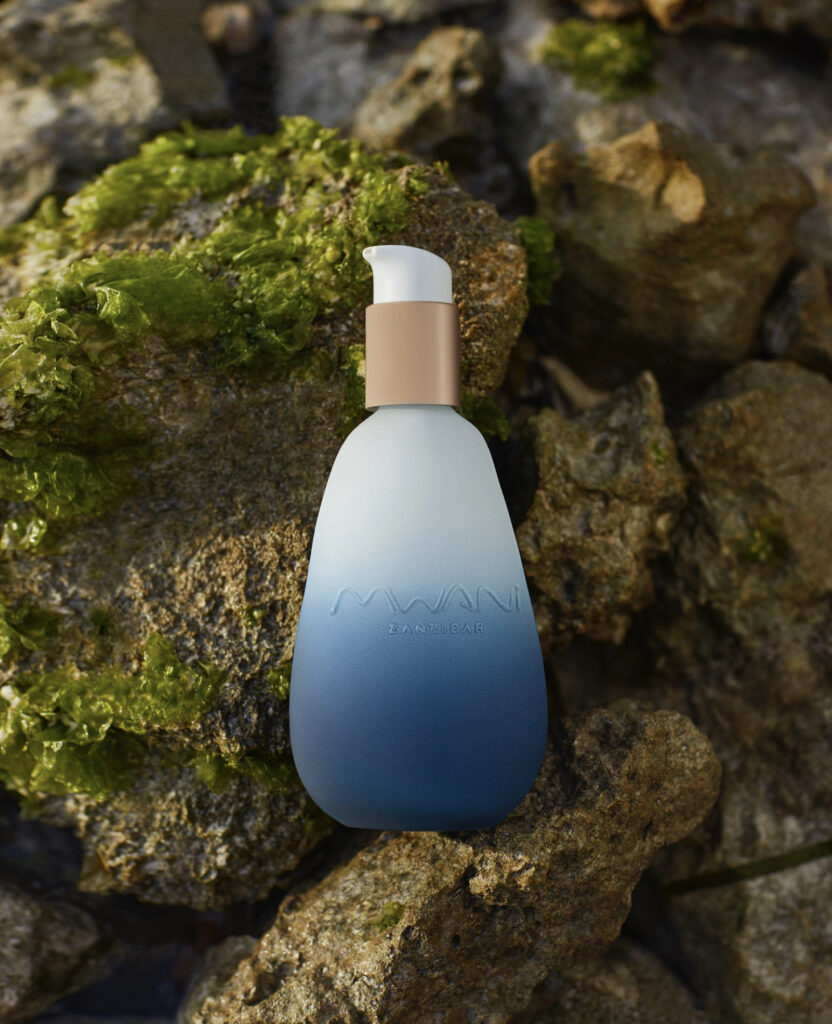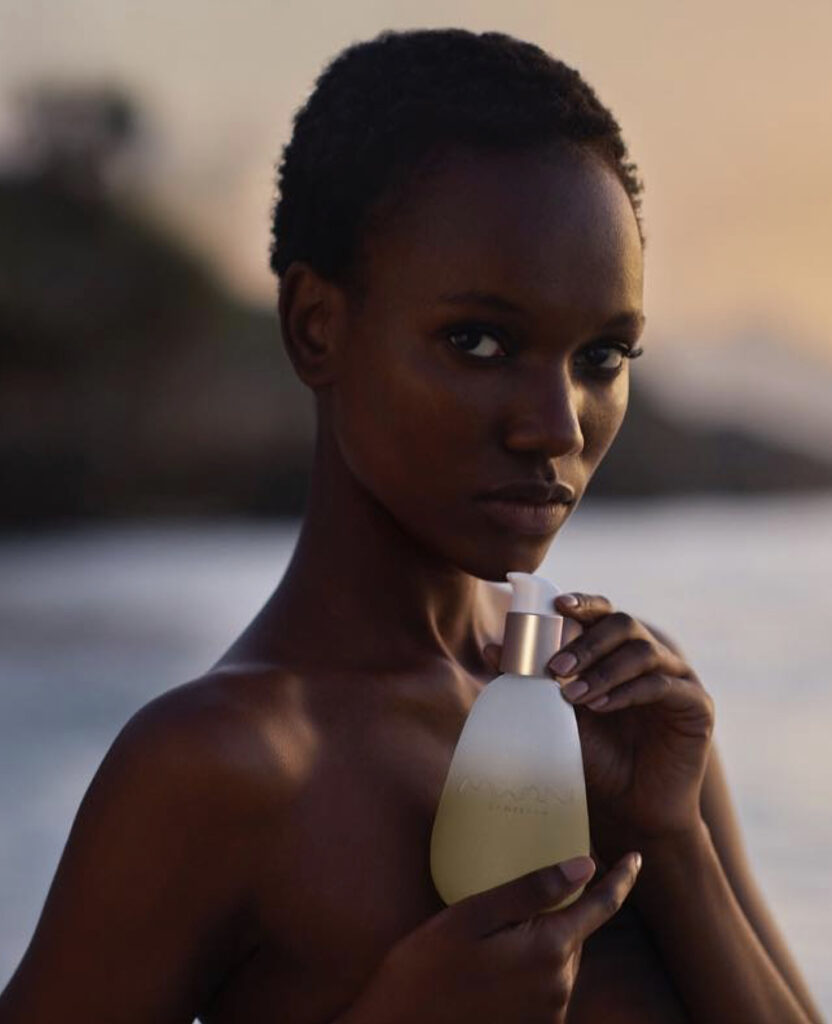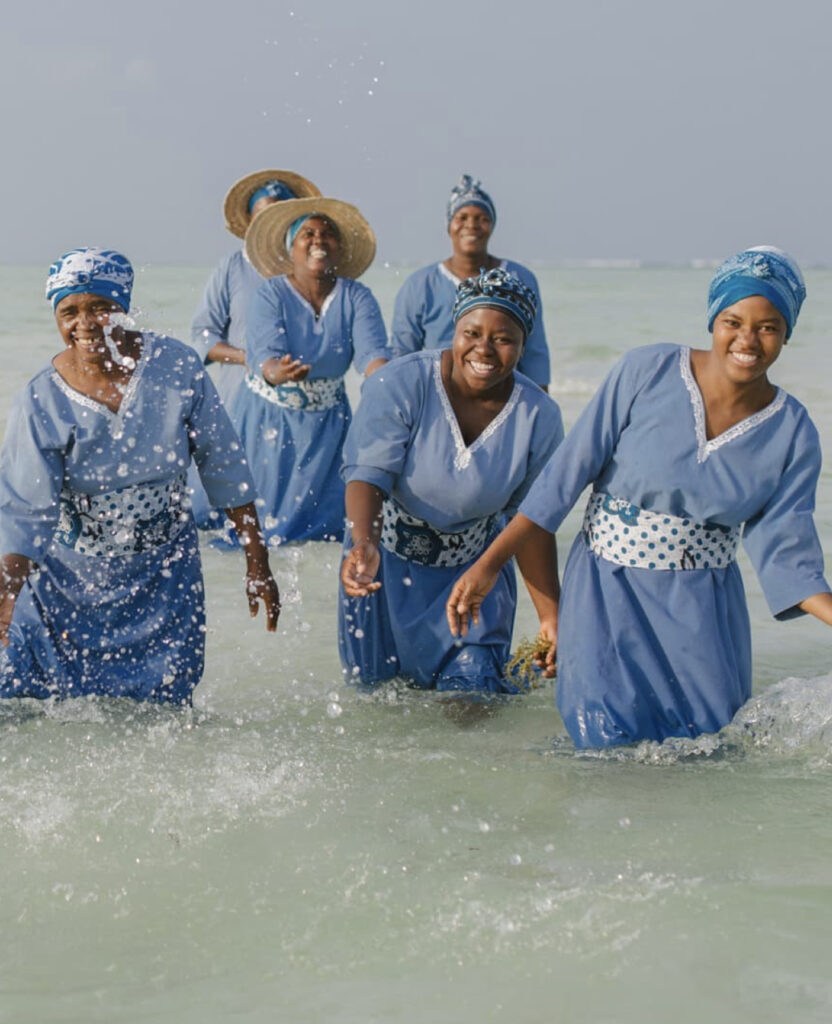Introducing Mwani Zanzibar to The Conservatory


by Wellbeing Editor Jamie Rosen
Once upon a time in beauty, new brands were introduced with a familiar story that fit many of the same beats: an indigenous ingredient that was not widely known, farmers who noticed how smooth their hands were after working with it, and research to back up those skin suspicions. Mwani Zanzibar, a new plant-based skincare brand named for seaweed, does indeed check those boxes; but its story and its impact go far deeper.
To start with the facts: It is true that there are three types of seaweed farmed according to the phases of the moon from the Indian Ocean that are so new to skincare they had to be registered with INCI (a cosmetic ingredients database). It is also true that many of the 23,000 female seaweed farmers in the Tanzanian archipelago have noticed smooth hands after wading into the Indian ocean at low tide to cut seaweed branches. And that the seaweed have been studied by scientists in South Africa and Japan and put into clinical studies for four years, yielding a patent-pending complex, MW Macroalgae Extract, that has been proven to improve skin texture and firmness.
But what these products enable is a truly beautiful thing: “The seaweed farming industry is pretty much a capitalist slavery system,” says co-founder and director Klaartje Schade. In setting out to change that, she says, her goal is to “see these women farmers represented on the best shelves in the world.” She was born in Zimbabwe and grew up in Mozambique. After working in mergers and acquisitions at Merrill Lynch and while living on a houseboat in Holland, she heard about an NGO supporting female seaweed farmers. It wasn’t working very well, but she was interested to see if she could figure it out. “I knew there was something there.”
While at first, she was driven more by social and environmental impact than smooth skin, the journey to launching a global brand was led by the female farmers. “They were pushing me in this direction,” she says. And she has, in turn, pushed them. The Mamas, as they’re known, don’t just harvest the seaweed used in the Mwani products, they have also been trained to process it. “They get the seaweed from the ocean and into the product as quickly as possible,” she says. ” We believe it’s important to empower people to become part of the value chain. The seaweed is dried in a specific place, then powderized, freeze dried, and then it undergoes another nine steps of filtration.” Their wages—900 percent more than their peers—have enabled their children to stay in school for two years longer than the average student, and allowed many to build homes that give them the independence to make their own housing and marital decisions.
As for the products themselves, the first two are cold-processed macroalgae soaps. One bar with turmeric and cinnamon helps increase circulation and reduce pigment while the other is made with lemongrass to improve skin clarity. A multipurpose Facial Mask & Cleanser has a honey base that comes from nearby mangroves that sequesters more carbon than rainforests. And the Face & Body Skin Superfood cream uses toning marine plankton and nourishing African oils.
The launch represents 10 years of building a sustainable company in a country that is not known for its beauty exports. “It is one of the hardest places to do business in the world,” Schade says, while proudly adding that they’ve earned the trust of the local community and the government without making or taking any bribes, a rarity in the area. She’s committed to maintaining a slow manufacturing process that prioritizes quality over quantity. “It’s not in a continuous, neverending supply,” she says. “Things are seasonal, things are limited. But we’re very passionate.” And making them count.

Discover + Shop Mwani online and at our galleries.

